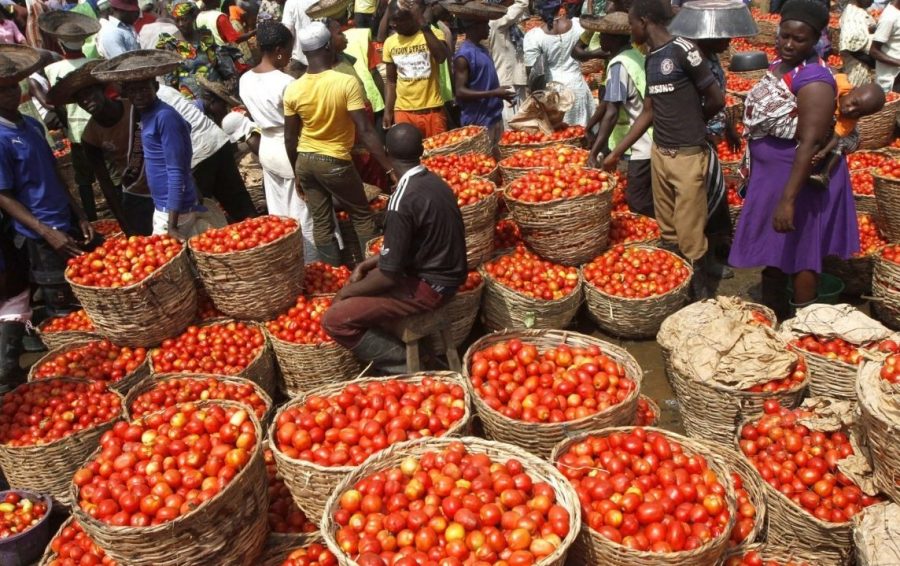Yesterday, the National Horticultural Research Institute (NIHORT) announced at its 2-day workshop that Nigeria’s tomato supply gap now stands at 700,000 metric tonnes. According to the institute, Nigeria now produces 2.3m metric tonnes of tomato per annum. This represents a 27.8% increase from 1.8m metric tonnes produced by the country 2 years ago. Nigeria remains the largest producer of tomato in Sub-Saharan Africa.
According to the CEO, NIHORT, Abayomi Olaniyan, the institute and several other partners pulled resources to invest in training and technology for tomato farmers which served as the primary catalyst for the improvement witnessed in tomato production in Nigeria.

One of the major policy mantras of the administration of President Muhammadu Buhari has been diversification of the Nigerian economy from being an oil-focused economy. This has necessitated significant investments in Agriculture through several schemes such as the Anchors Borrowers Program (ABP).
The CBN, as part of its efforts in encouraging local production, also placed tomato & tomato paste imports on the FX restriction list. We believe this has led to significant investments in the production of the fruit as revealed by NIHORT. On the negative, the move to protect local farmers has led to higher prices due to the huge supply gap which was previously filled by imported tomatoes.
[READ MORE: Palm Oil: Industry potentials remain untapped)
Despite the significant attention tomato production and tomato processing has received with investments such as Dangote’s US$3bn tomato processing plant established in Kano, we believe the country’s production capacity remains significantly undertapped. Nigeria’s favourable weather conditions and large arable land puts the country in a good position to become a major tomato exporter. The CEO, NIHORT noted that the primary challenges limiting tomato production capacity in Nigeria are poor tomato nursery practices and after harvest yield loss.
Tomato nursery is a major prerequisite to produce quality seedlings which forms the base for sustainable tomato production. Tomato seedlings are typically raised in nurseries before they are transplanted to the fields. Tomato nursery management is a significantly expensive venture for many farmers in Nigeria (many of whom are smallholder farmers) and typically have to buy the seedlings from other countries.
Furthermore, post-harvest losses of tomato in Nigeria is estimated at 40%. These losses arise largely due to a combination of poor transportation infrastructure & inadequate storage facilities. Tomatoes are predominantly grown in the north but mainly consumed in the southern part of the country. Decrepit transport infrastructure often hinders the swift movement of harvests from the north to south where they would be sold. In addition, the predominant preservation method for Nigerian tomato farmers is sun-drying which leads to losses due to rainfall and animals who devour them while they are being dried.
Beyond the provision of finance, we think investment in adequate and reliable transport systems such as electric rail systems as well as modern storage facilities will go a long way in improving domestic production and attracting private sector investment.
_______________________________________________________________________
CSL STOCKBROKERS LIMITED CSL Stockbrokers,
Member of the Nigerian Stock Exchange,
First City Plaza, 44 Marina,
PO Box 9117,
Lagos State,
NIGERIA.











